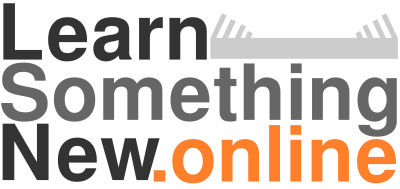Blog (Page 8 of 10)

The Benefits of Peer-to-Peer Learning in Adult Education: Fostering Collaborative Growth
In the realm of adult education, peer-to-peer learning stands out as a powerful tool for enhancing the learning experience. By engaging with a learning community of fellow students, you have the opportunity to exchange knowledge, skills, and insights that can greatly benefit your own educational journey. Unlike traditional classroom environments, peer-to-peer learning emphasizes collaborative efforts and can lead to a more engaging and dynamic learning process. By leveraging the diverse backgrounds and experiences of peers, you not only gain new perspectives, but also contribute to the collective growth of your learning community.

Why Emotional Intelligence is Essential for Success: The Key to Thriving in Work and Life
Emotional intelligence, often abbreviated as EI or EQ, pertains to the ability to perceive, evaluate, and manage one’s own emotions as well as those of others. In the contemporary workplace and in personal life, EQ is increasingly recognized as a key factor that contributes to success — perhaps even more so than the traditional measure of intelligence, IQ. Having a high emotional intelligence means being aware of emotions as they occur, both in oneself and in interpersonal interactions, and using this awareness to guide decision-making and behavior.

How Understanding Muscle Memory Accelerates Mastery of Complex Tasks
Mastering complex tasks can be a challenging endeavor, whether it’s perfecting a sport, playing a musical instrument, or learning a new language. The concept of muscle memory plays a crucial role in this process. Muscle memory isn’t actually about your muscles remembering anything—it’s about the brain optimizing motor skills through repetition. When you practice a skill over and over, your nervous system gradually reduces the effort needed to perform the task and increases your efficiency, making the task almost automatic.

The Science of Neuroplasticity: Unlocking the Secrets of Lifelong Learning
Neuroplasticity, the brain’s remarkable ability to reorganize itself by forming new neuronal connections throughout a person’s life, stands as the cornerstone of lifelong learning. This ability allows the brain to compensate for injury and disease, to adjust to new experiences, and to incorporate learning and memory. At the core of lifelong learning, neuroplasticity challenges the once-held belief that the brain’s structure is static after a certain period of growth. Instead, it proposes that our brains are malleable and can continue to change and adapt as we engage with new knowledge, skills, and experiences.

5 Unconventional Learning Methods to Speed Up Your Personal Growth Journey
Personal growth is a journey that often follows the well-trod path of traditional learning and self-improvement strategies. However, embracing less conventional methods of learning can open doors to new insights and accelerated development. Unconventional learning goes beyond the classroom and the typical self-help books, utilizing real-world experiences and creative techniques that compel you to think differently. These methods foster an environment that catalyzes growth and change. Embracing these unconventional methods means getting comfortable with the uncomfortable, often by reframing your perception of failure, diversifying your reading habits, and engaging in creative expression.

The Benefits of Keeping a Learning Journal for Personal Development: A Key to Self-Improvement
Embracing a learning journal in your personal development journey can be transformative. Not only does it offer a structured repository for your thoughts and learning experiences, but it also enhances your ability to reflect on and retain new information. By regularly documenting your insights, challenges, and achievements, you create a personal dialogue that can lead to deeper understanding and self-awareness. The process of keeping a learning journal goes beyond the simple act of note-taking.

The Art of Self-Education: Mastering New Skills on Your Own Terms
Self-education is an empowering process that invites you to take charge of your own learning. With the vast amount of information available at your fingertips, you have the unique opportunity to learn new skills, expand your knowledge, and grow both personally and professionally on your own terms. This journey is not just about acquiring information; it’s about developing the ability to teach yourself anything you desire to learn. By becoming a self-learner, you embrace a mindset that values curiosity and adaptability, key traits in today’s ever-changing world.

How to Use the Feynman Technique for Efficient Learning: A Simple Guide
Efficient learning is a sought-after skill in a world where knowledge is vast and time is limited. The Feynman Technique, named after the Nobel Prize-winning physicist Richard Feynman, is a method that promises to simplify complex ideas into simpler concepts for better understanding and retention. At its heart, this technique is about teaching what you’ve learned to someone else in plain and simple language, thereby reinforcing your own understanding and uncovering gaps in your knowledge.

The Impact of Mind Mapping on Creative Thinking and Knowledge Retention: Enhancing Learning Techniques
Mind mapping, a visual form of brainstorming and organization, is steadily gaining recognition as a powerful tool in enhancing creative thinking and knowledge retention. This technique entails the creation of a diagram that visually maps out information, allowing you to see the relationship between different concepts. It enables a free flow of ideas, making it easier to generate new thoughts and connect them in novel ways. Incorporating mind maps into learning processes can yield significant benefits.

Exploring the Dunning-Kruger Effect in Personal Development: Unveiling Self-Awareness Steps
The Dunning-Kruger Effect is a psychological phenomenon in which individuals with limited knowledge or competence in a particular domain greatly overestimate their own ability or knowledge. This cognitive bias leads to overconfidence and can be a significant barrier to personal development. Psychologists David Dunning and Justin Kruger first identified this effect in a seminal paper published in 1999. Their work has since shed light on why people often remain blissfully unaware of their own incompetence.
